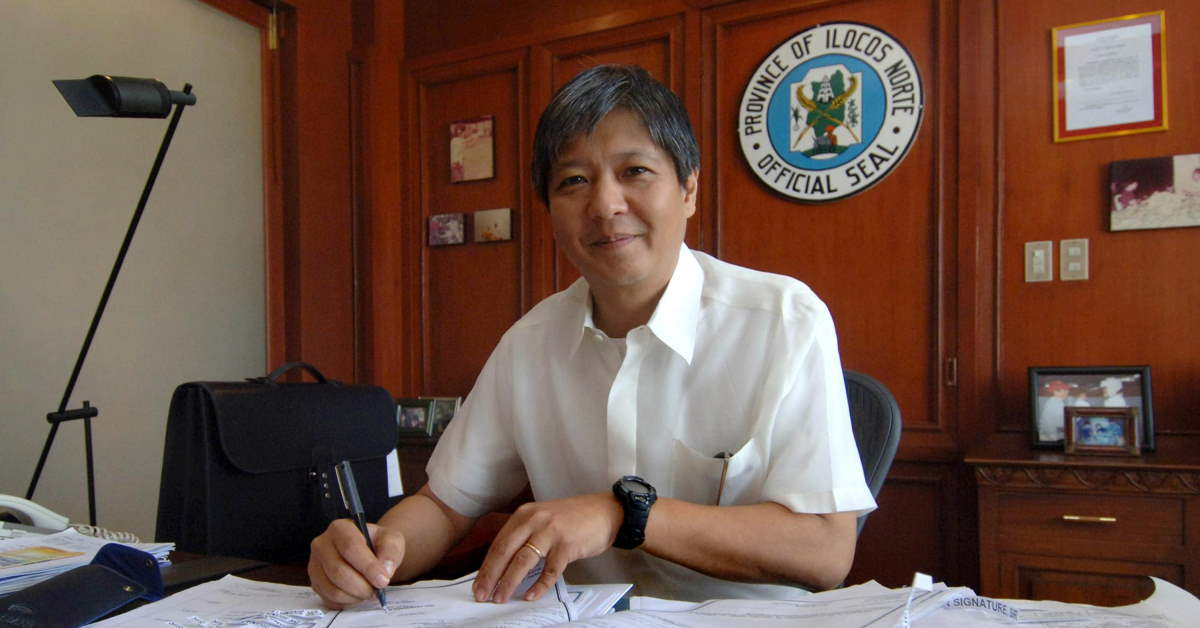Ferdinand Marcos Jr, whose dictator father and namesake presided over massive plunder and human rights abuses in the Philippines, is on the verge of winning the presidency after a decades-long effort to revive the family brand.
Voter surveys show Marcos Jr, known by his nickname "Bongbong", heading towards a landslide victory in the 9 May polls, boosted by a well-funded social media campaign that critics say has tried to rewrite history.
In the 36 years since a popular uprising toppled the patriarch and chased the family into United States (US) exile, the Marcoses have staged a stunning political comeback.
Marcos Jr, 64, has made it the furthest yet, narrowly losing the vice-presidential race to Leni Robredo in the 2016 election that vaulted Rodrigo Duterte to the nation's top office.
Now, Marcos Jr is the favourite to succeed Duterte, with Robredo once again his main rival.
Vowing to unify the country, Marcos Jr has made sweeping promises to boost jobs and tackle rising prices as part of a pathway out of the pandemic.
"Unity is my cause because of my firm belief that unity is the first step towards getting out of this crisis we are now in," Marcos Jr said, kicking off his campaign in February.
Growing up in the presidential palace in Manila, Marcos Jr wanted to be an astronaut before inevitably following his father's footsteps into politics.
He served as vice governor and twice as governor of the family's northern stronghold of Ilocos Norte province, and also had stints in the House of Representatives and the Senate.
His 92-year-old mother, Imelda, has said she dreams of him becoming the country's leader. While he consulted her about running for president, Marcos Jr told CNN Philippines the decision was his.
Marcos Jr's links to his father, especially the bloody repression of the martial law years, have made him one of the nation's most polarising politicians.
But he has benefited from a deluge of fake and misleading posts on social media platforms targeting a largely young electorate with no memory of the corruption, killings and other abuses committed during the elder Marcos's 20-year rule.
Marcos Jr has denied using trolls.
His campaign has also been bolstered by a formidable alliance with vice presidential candidate and first daughter Sara Duterte and the backing of powerful families who wield enormous influence in the feudal and corrupt democracy.
'We're Not There Yet'
Marcos Jr was at boarding school in Britain in 1972 when his father declared martial law, unleashing large-scale corruption and a bloody crackdown on dissent.
He has defended his father's rule by citing the initial surge of economic growth and government spending under martial law, which he said was necessary to save the country from communist and Muslim insurgencies.
While he describes his father as a "political genius", Marcos Jr has distanced himself from charges of pillaging state coffers and economic mismanagement during his regime that later impoverished the nation.
After the fallen dictator's death in Hawaii in 1989, the Marcoses returned home and began their remarkable revival, tapping local loyalties to get elected to a succession of higher positions.
The eldest of Marcos Jr's three sons with wife Louise – a lawyer from another wealthy family – is a first-time candidate in these elections, seeking one of two congressional seats in Ilocos Norte.
The clan's turnaround has been aided by public disenchantment over an enduring gulf between the rich and poor, and graft allegations that marred post-Marcos administrations.
Seeking to avoid a repeat of the 2016 campaign when he was hounded by questions about his family's past, Marcos Jr has this time snubbed debates with rivals and given few interviews.
When he does, he appears awkward and ill at ease.
Opponents have tried in vain to have him disqualified from the presidential race over a previous conviction for failing to file income tax returns.
They also have accused him of exaggerating his educational qualifications and the family of failing to pay nearly US$4 billion in estate taxes.
Until recently Duterte was a supporter of Marcos Jr, crediting the Marcos family's backing for sealing his presidential victory.
But although his party has endorsed Marcos for president, Duterte has called him a "weak" leader.
This has fuelled speculation that Duterte, who faces an international probe into his deadly drug war, is trying to secure assurances from Marcos Jr for when he is out of office.
While he has a huge lead over Robredo in the polls, Marcos Jr told CNN Philippines he was focused on the campaign.
"I'm not confident that I'm going to be the president yet no matter what numbers you show me," he said, still smarting from his defeat in 2016.
"We're not there yet."
